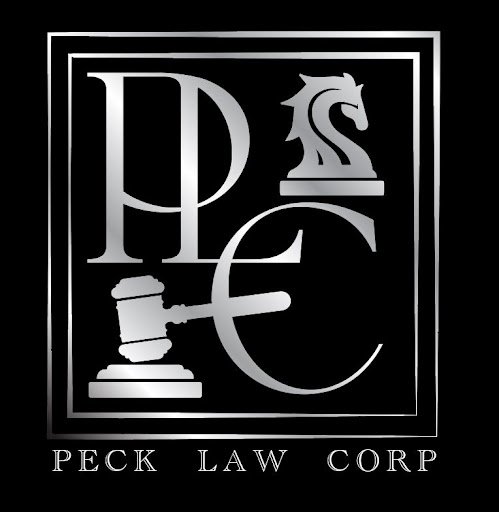Understanding the Elder Abuse and Dependent Adult Civil Protection Act (EADACPA)
The Elder Abuse and Dependent Adult Civil Protection Act (EADACPA) is a vital piece of legislation designed to safeguard some of the most vulnerable members of our society. With its focus on protecting elders and dependent adults from abuse, neglect, and exploitation, EADACPA is instrumental in setting a legal framework for the prevention, reporting, and prosecution of abuse cases. This comprehensive guide aims to outline the essential aspects of EADACPA, including the rights and protections it covers and its significance in addressing elder abuse and nursing home abuse.
What is the Elder Abuse and Dependent Adult Civil Protection Act (EADACPA)?
The Elder Abuse and Dependent Adult Civil Protection Act (EADACPA) was enacted by the California legislature to address the increasing concerns surrounding the mistreatment of elderly individuals and dependent adults. The Act is codified under California Welfare and Institutions Code Section 15600 and beyond. The primary aim of EADACPA is to protect individuals aged 65 or older, as well as dependent adults between the ages of 18 and 64 who are unable to protect their rights or carry out daily activities due to physical or mental limitations.
Types of Abuse Addressed by EADACPA
EADACPA encompasses various forms of abuse to ensure that victims receive comprehensive protection. The types of abuse outlined in the Act include:
1. Physical Abuse
Physical abuse refers to any form of physical harm inflicted upon an elder or dependent adult. This includes hitting, slapping, pushing, or any form of assault and battery.
2. Neglect
Neglect occurs when caregivers fail to provide adequate care, resulting in harm or risk to the elder’s well-being. This may include failing to provide necessary food, shelter, medical care, or personal hygiene assistance.
3. Financial Abuse
Financial abuse involves the unauthorized or improper use of an elder’s or dependent adult’s funds, property, or resources. Examples include theft, fraud, identity theft, or coercion to modify financial documents.
4. Psychological Abuse
Psychological or emotional abuse involves inflicting mental suffering through verbal assaults, threats, isolation, or harassment. This type of abuse can lead to severe emotional distress and long-term psychological harm.
5. Abandonment
Abandonment is when a caregiver deserts an elder or dependent adult, leaving them without the means or assistance to care for themselves.
6. Abduction
This type of abuse occurs when an elder or dependent adult is taken or detained against their will, often for the purpose of isolating them from their support network.
Legal Protections Under EADACPA
EADACPA provides significant protections that empower victims and their families to take legal action against perpetrators of abuse. Here are some of the critical rights and protections established by EADACPA:
Civil and Criminal Penalties
EADACPA allows for both civil and criminal penalties to be imposed on individuals or entities found guilty of abusing elders or dependent adults. Civil suits may result in monetary compensation for damages, including punitive damages in certain cases. Criminal charges can lead to fines and imprisonment, depending on the severity of the abuse.
Enhanced Remedies and Burden of Proof
Under EADACPA, victims or their families may pursue enhanced remedies, such as attorney’s fees and pain and suffering damages. Additionally, the standard of proof required in EADACPA civil cases is “clear and convincing evidence,” which is higher than in ordinary civil cases but lower than the “beyond a reasonable doubt” standard in criminal cases.
Protection Against Retaliation
EADACPA protects individuals who report abuse from any form of retaliation or discrimination. Caregivers, institutions, or any associated parties are prohibited from taking adverse actions against those who speak up about abuse.
How EADACPA Relates to Elder Abuse and Nursing Home Abuse
Elder abuse and nursing home abuse are significant issues that often intersect with EADACPA. The Act plays an essential role in holding nursing homes, caregivers, and other responsible parties accountable for failing to meet the standards of care mandated by law. Nursing homes are required to ensure the safety and well-being of their residents, and violations of these duties can constitute neglect or abuse.
The Act also helps families seek justice when nursing homes engage in abusive practices or fail to protect residents from harm. EADACPA provides a legal basis for filing civil suits against such facilities, which can lead to settlements or court-ordered damages for the victim.
Steps to Take if You Suspect Elder Abuse
If you suspect that an elder or dependent adult is being abused, taking immediate action is crucial. Here’s what you should do:
Report the Abuse: Contact Adult Protective Services (APS) or local law enforcement to report any suspected abuse. In cases involving nursing home abuse, you may also file a complaint with the California Department of Public Health (CDPH).
Document Evidence: Keep a record of any signs of abuse, including photographs, witness statements, medical reports, or financial documents.
Seek Legal Representation: Consulting an attorney experienced in elder abuse and EADACPA cases is essential for understanding your rights and pursuing justice.
How Peck Law Corporation Can Help
At Peck Law Corporation, we are dedicated to providing comprehensive legal representation for victims of elder abuse and nursing home abuse throughout Southern California. Our team of expert attorneys specializes in elder law and has extensive experience navigating the complexities of EADACPA. We operate on a contingency fee basis for all injury-related cases, including elder and nursing home abuse cases. This means you do not pay any legal fees unless we secure compensation for you.
Our compassionate approach, combined with our deep understanding of elder abuse law, ensures that we advocate tirelessly for the rights of victims and their families. Although we do not help with financial-related abuse cases, we have the expertise to assist you with all other types of abuse. Whether you need assistance filing a civil suit, understanding your legal options, or navigating the reporting process, Peck Law Corporation is here to help.
Seeking Justice and Support Under EADACPA
The Elder Abuse and Dependent Adult Civil Protection Act (EADACPA) is a powerful tool for protecting the rights of elders and dependent adults. By understanding the protections offered by this Act, individuals can take the necessary steps to report and combat abuse, ensuring justice and safety for their loved ones. If you or someone you know needs assistance with an elder abuse or nursing home abuse case, contact Peck Law Corporation for a free consultation. Our experienced legal team is ready to help you navigate the complexities of elder law and secure the justice and compensation you deserve.
FAQs
-
The Elder Abuse and Dependent Adult Civil Protection Act (EADACPA) aims to protect elderly individuals and dependent adults from abuse, neglect, and exploitation by providing legal avenues for prevention, reporting, and prosecution.
-
In California, the Elder Abuse and Dependent Adult Civil Protection Act (EADACPA) provides civil remedies for elders (65 years or older) and dependent adults who suffer abuse, including physical harm, neglect, financial exploitation, abandonment, isolation, or other treatments resulting in harm, pain, or mental suffering. This act allows victims to seek compensatory and punitive damages, as well as attorney's fees and costs, to address and deter such misconduct.
-
California Civil Code Section 3345 permits courts to impose up to triple the amount of fines, civil penalties, or other remedies in cases involving unfair or deceptive acts or practices directed at senior citizens or disabled persons. This provision aims to enhance deterrence and punishment for offenses that exploit vulnerable populations.
-
Yes, EADACPA can be used to hold nursing homes accountable for abuse or neglect, allowing victims and their families to pursue civil suits for damages.



